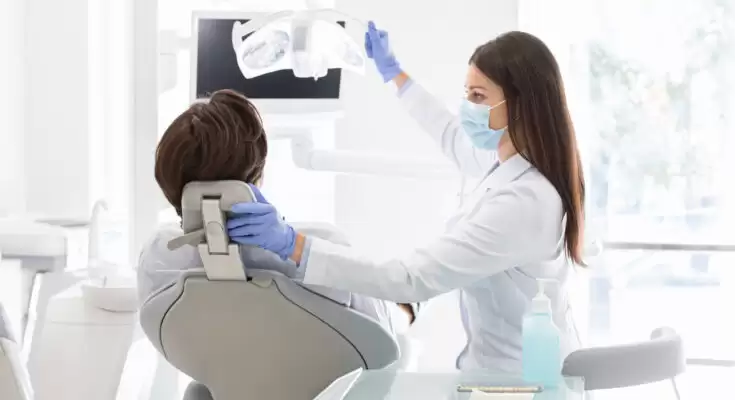Dental emergencies can arise when you least expect them. Although your dentist’s office can provide care for many dental issues, it may not be equipped to handle certain situations. It is important to know the signs of an emergency and how to handle the situation if it arises. Let’s take a look at what constitutes a dental emergency and how to respond.
Signs of a Dental Emergency
The most obvious sign of a dental emergency is pain. If you are experiencing any kind of discomfort in your mouth, it could be a sign that something requires immediate attention from your dentist or possibly even an ER visit. Other signs include swelling, broken or cracked teeth, lost fillings or crowns, bleeding gums, or anything else that requires immediate medical attention. Be sure to contact your dentist right away if you experience any of these symptoms.
How To Handle Emergency Dental Care
If you believe that you needemergency dental care, the first thing you should do is contact your dentist’s office. Most dentists will offer after-hours advice and provide guidance on how to handle the situation until they can see you in person. If your dentist does not offer after-hours advice or if they are unavailable for any reason, then it is best to go directly to an emergency room in order for medical professionals to evaluate your condition and provide treatment accordingly. Alternatively, there are also 24-hour clinics available that specialize in providing urgent dental care when needed.
Dealing With the Pain
If the pain is severe enough, it may be necessary to seek help from an emergency room doctor before visiting your dentist. In this case, it is important to tell the doctor about any medications you have taken recently and provide them with information about any allergies you have so they can properly treat you and avoid any potential problems caused by allergies or drug interactions. To ease the pain until you can get professional help, try using cold compresses on the affected area and taking over-the-counter medication such as ibuprofen or acetaminophen as directed in their packaging instructions.
Seeking Professional Help
If possible, try to call ahead when visiting either your dentist or an ER doctor for a dental emergency so that they are aware of your arrival and can prepare for it accordingly. Your dentist will likely ask questions about what happened and give instructions on how to care for yourself until you arrive at their office. This will allow them to assess better what needs to be done once they see you in person and make sure that no further damage occurs before then. Additionally, if there are any X-rays available from previous visits with this same dentist, those should be brought along as well since they can provide vital insight into diagnosis and treatment options.
Dealing with Insurance
When seeking emergency dental care, it’s important to know what kind of coverage your insurance provides and any limits on coverage amounts. This will help ensure that you don’t end up with unexpected bills down the road. However, if you don’t have adequate insurance coverage for the cost of treatment or if your insurance doesn’t cover emergency services at all, there are other options available such as financing plans through third-party companies like CareCredit®, which can help spread out payments over time and make them more manageable.
Dental emergencies can be scary experiences, but knowing what signs to watch out for and how best to handle them can go a long way in easing the stress associated with them. Remember that if the pain becomes too severe, seeking help from an ER doctor may be necessary before visiting a dentist, so keep that option open as well, just in case things do not improve quickly enough on their own with home remedies such as cold compresses and over-the-counter medications like ibuprofen or acetaminophen. Being prepared ahead of time will enable both yourself and your healthcare professionals to address better whatever issue has arisen efficiently while minimizing further damage until professional help arrives!
